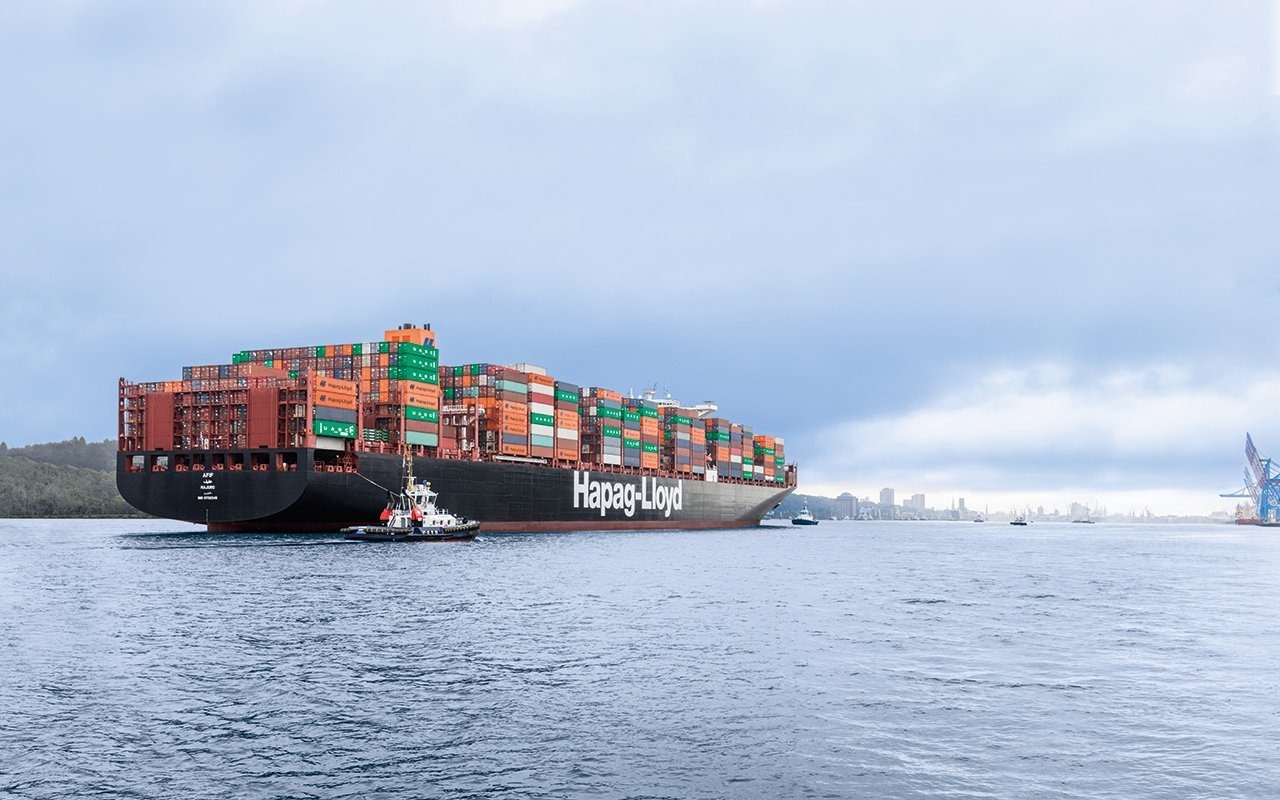
At midnight on January 31 2020, the United Kingdom officially left the European Union. Nothing has changed so far for the freight transport sector, but the countdown has started. The ports are getting themselves ready.
More than three years after the referendum in which it decided to leave the European Union (EU), the United Kingdom became a "third" country, according to the EU terminology, on January 31. Its departure had no ill effects on trade with the Continent since it marks the opening of a transition period, which provides for the status quo to be maintained until December 31 2020, with the possibility of an extension of one or two years after that.
This period should allow the European Union and the United Kingdom to negotiate their future relationship but it would be naïve to imagine that the continuity, which everyone got used to during the tortuous Brexit saga, will last much longer. Boris Johnson was elected to negotiate from a position of strength and that seems to be what he intends to do.
A new maritime strategy
Maritime independence from Europe is already a key underlying feature of the policy being followed by the British prime minister with regard to trade and national supply needs. It is an obvious position to adopt, partly to enable himself to start the negotiations with Brussels on a future agreement from a position of strength and partly to demonstrate to his domestic political audience that the UK has recovered its sovereignty.
Brussels is now under pressure. If a Europe-wide agreement proves impossible to find, there is a risk that the United Kingdom and certain EU member states will strike up bilateral agreements to secure their vital interests, thus weakening community governance.
At the same time, the United Kingdom has clearly adopted an unashamedly Atlantist line which fits in perfectly with Donald Trump's populist "Maker America Great Again" discourse.
1. A wider vision…but without Europe
On the global stage, the UK can be expected to forge closer relations with the US-Canada block and the Singapore/Australia/New Zealand axis. Africa will form another block with South Africa the main point of entry and a special agreement with be struck with Japan.
In other words, the United Kingdom will give priority to creating links with the Commonwealth, the United States and their principal allies via a major free trade agreement based on their shared history, past colonial links, language…and banking institutions.
Three big ports of entry handle the UK's major import flows: Southampton, Felixstowe and London Gateway. But Britain will have to set up wider ranging maritime and air links with its traditional partners. The central artery in this enlarged network will be a sort of trans-Atlantic "whisky" boulevard, which will be fast and virtually wholly privatized, between the east coast of Canada and the US and the United Kingdom.
The manoeuvring is already under way in the port sector. On February 11, US ambassador to the UK Robert Wood Johnson visited the Liverpool2 container terminal, which is able to accommodate 10,000 teu vessels. It is the only deep-water port on the British west coast. Johnson, who was accompanied by industrialists and representatives of Grimaldi group company Atlantic Container Lines (ACL), was highly enthusiastic about the prospect of setting up a "sea motorway" in the North Atlantic.
Although new international routes will need to be created, the UK can clearly not do without its European partners. At the moment, 95% of the UK's international trade transits through British ports, half of it with the European Union.
2. Multiple access points
The EU, which is a key element in British logistics chains, is an essential trading partner. But the organisation of traffic flows will need to change radically. The main idea is to avoid the bottlenecks which could form once customs borders are re-established. Of particular concern is the risk of saturation between Calais and Dover. On February 10, the British government confirmed that it planned to introduce controls over imports from the EU, just as the EU plans to control British goods entering the Eurozone.
The solution could be to increase the number of entry points on the Continent. This policy, which could benefit the French ports of Dunkirk, Dieppe, Fécamp, Le Havre, Caen-Ouistreham, Saint-Malo and Roscoff, would lead to the creation of numerous small shipping lines, with financial support from the British State. One can suppose that these lines would specialize according to traffic and business activity. On the British side, Teesport also seems to be in contention for such a role.
Some operators are already preparing to do battle. Brittany Ferries and Ports de Normandie announced on February 12 that they are launching a rail-road project linking Britain and Ireland to Spain via Cherbourg.
"The cross-Channel market saw 4.2 million heavy goods vehicles, including those using the Channel tunnel, transit through France in 2018," the two partners said in a communiqué. "The market is growing constantly (+25% over 10 years) and more than five million passages are expected by 2025." They add that "new challenges are emerging, including the need to take account of Brexit, growth in vessel sizes, changes to come in mobility patterns and environmental issues".
Through the launch of an inter-modal service, Brittany Ferries aims to make optimum use of its vessels' weight and volume capacities by reducing the number of lorry tractors and increasing the number of trailers.
A real obstacle course
There are, however, some obstacles in the way of this policy of promoting greater fluidity in trade with Europe.
- The British Ports Association (BPA) is in favour of setting up free ports on the British side of the Channel. Brussels is against this, arguing that it will distort competition and attract capital of dubious origins. The BPA wants the government to take its existing proposals further, however. At the moment, 125 seaports handle freight in the United Kingdom but the state plans to grant freeport status to only 10 of them. The BPA wants this limit removed.
- The new British government, which is very much inclined to introduce tougher immigration controls, is not very keen on the idea of having numerous points of passage between the United Kingdom and the Continent. On the subject of immigration, moreover, the Freight Transport Association has already sounded the alarm on another issue, the risk of running into labour shortages in the logistics sector.

Jérôme de Ricqlès
Shipping expert
Our latest articles
-
Subscriber 3 min 24/02/2026Lire l'article -
Hapag-Lloyd - Zim: a shipping deal with geostrategic implications
Lire l'article -
European road freight: the spot market is stalling
Lire l'article


